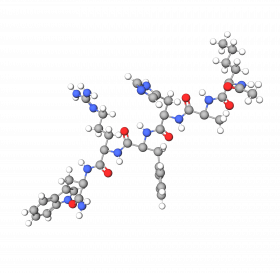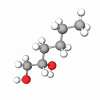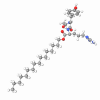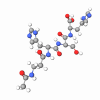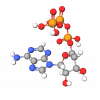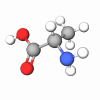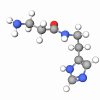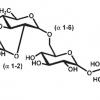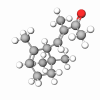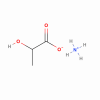Even if gray hair can be a fashion statement, many people desire lustrous colorful hair. As we age, the hair follicles produce less melanin, the pigment responsible for hair color, so progressively hair become gray.
Hair follicles produce the hair fiber that becomes pigmented as a result of melanin synthesis and its transfer from melanocytes into keratinocytes. To fight back hair graying, Unipex has developed Acetyl Hexapeptide-1, a biomimetic peptide derived from alpha-MSH.
Acetyl Hexapeptide-1 (sequence: Ac-Nle-Ala-His-D-Phe-Arg-Trp-NH2; XAHFRW) stimulates melanin synthesis by melanocytes and also favors melanin transfer from melanocytes into keratinocytes. Moreover, Acetyl Hexapeptide-1 obtains outstanding results in ex vivo experiments on hair.
It decreases the number of white and low-pigmented cells and increases the number of moderate and highly-pigmented cells in hair bulbs. Acetyl Hexapeptide-1 is also used in a peptide-based MelinOIL™ for preparing skin for sun exposure and protection from UV-induced photoaging.Melitane® is a peptide agonist of the α-MSH (α-Melanocyte-Stimulating Hormone). The α-MSH regulates melanin synthesis via the activation of its receptor MC1-R. Because of its affinity with the receptor MC1-R, Acetyl Hexapeptide-1 can be used as a natural photo-protector and as an inflammation modulator.
- Natural Photo-protection Factor: Melitane® mimics the activity of the α-MSH and stimulates melanocyte activity as well as melanin pigment production.
- Inflammation Modulation Factor: Acetyl Hexapeptide-1 limits the expression of biochemical inflammation mediators such as IL-1, IL-8, PGE2and Rantes via the activation of MC1-R receptor and provides significant protection against UV-induced erythema.
By stimulating the melanin synthesis through a natural pathway and by preventing the excessive production of pro-inflammatory cytokines, Melitane® represents an ideal complement to the skin’s own levels of natural melanin and strengthens the skin’s defenses against the harmful effects of sunshine and reduces the potential pro-inflammatory consequences.
